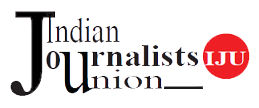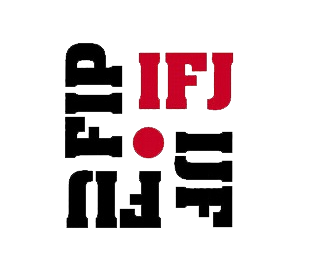~Geetartha Pathak
Right to information, transparency, right to disagree and freedom of media are different faces of the same entity-right to freedom of expression, enshrined in the Article 19 of the Constitution. The present socio political environment has distorted one of the most important fundamental rights given by the constitution to the people of India.
Diluting RTI/WBP Act
It is clear from the legislative agenda of the monsoon session of Parliament that the government wants to amend the Right to Information (RTI) Act 2005. The proposed amendment shows that the central government seeks control over the tenure, salary and allowances of the Chief Information Commissioner and information commissioners at the Centre and State Chief Information Commissioners. Presently they are enjoying the same independent status like the Chief Election Commissioner and Election Commissioners in matters of pay, allowances and conditions of service. The proposed amendment wants to tighten the hold of the administration on Information Commissioners.
According to the pre legislative consultation policy of the government of India, any amendment to law should be discussed in public before it goes to the cabinet. The government kept the proposal of amendment to the RTI Act secret without any hint of pubic consultation. The Supreme Court has held right to information as being integral to the right to free expression under Article 19 (1) (a) and therefore weakening the RTI Act will negate that guarantee.
Similarly, the Centre brought an amendment Bill to Whistle Blowers Protection (WBP) Act without any public debate. RTI requests seeking information on the nature of amendments were denied to citizens. The text of the amendment Bill was known after it was introduced in the Lok Sabha. The amendment diluted the WBP Act by reducing protection to the whistle blowers in certain matters.
Last year the government dealt another blow to the Whistleblower, with the proposal that the request of an RTI seeker will be closed with his/her death. This was dangerous proposition, as it would encourage the affected corrupt officials or businesspersons to silence the whistle blowers. The government is slowly wrapping the veil of secrecy on governance in the name of transparency. The government has enabled political party funding through secret electoral bond in the last union budget all in the name of transparency.
Lynching Literature
Now lynching euphoria of the cow vigilantes has shifted to literature. S. Hareesh, a 2018 Kerala Sahitya Akademi award winner was forced to withdraw his novel Meesha from Mathrubhumi weekly where it was serialized for the last three weeks after numerous threats from right-wing activists who called the novel an insult to Hinduism. The writer was accused of 'hurting religious sentiments' and 'maligning Hindus'. He was threatened that his hand would be chopped off to teach him a lesson. Indian Writers Forum has condemned the threat. The writers’ body said "No writer should be hounded into putting down his or her pen. No democracy, indeed no culture, can live if its writers are silent. This is why we have to fight against this hounding of writers into self-censorship with every word we have". Who? burnt copies of the Mathrubhumi weekly, prompting the editor to tweet that literature is being mob lynched.
In February this year the noted Malayalam poet Kureepuzha Sreekumar was attacked in Kollam, allegedly by right-wing activists. The assailants were enraged by his speech at the function, in which he referred to an year-long friction between the Dalits and the upper caste Nairs in the area over the building of a boundary wall of a local temple. Sreekumar was accosted by the group when he was about to leave the venue of a public function where he was a guest speaker.
Noted Tamil novelist Perumal Murugan was forced to sign an unconditional apology and withdraw all the copies of his novel Madhurobhagan (One Part Woman) in 2015 under a 'peace treaty' brokered by the local police. Murugan later on announced that he was giving up writing, and said on his Facebook page that "Perumal Murugan, the writer is dead. He came back to the literary field after the Madras High Court came to his rescue.
Poet-lyricist Javed Akhtar who has in the past faced the wrath of rightist activists and trolls for his opinions has rightly warned that the room for creativity or freedom of expression, which has been the ethos of Indian democracy, is shrinking.
It is unfortunate that incidents of attacks on authors are increasing during present regime in India and an environment of forced self censorship has not only taking away our general right of freedom of expression, it is gagging the most creative voices in the realm of literature and cinema.
We have seen the frenzied reactions of the Hindu nationalists and even the ruling BJP in the case of screening of historical film Padmavat and films like S Durga and Nude.
Culture of self censorship
The menace of self censorship is not confined to literature and other forms of art; it is inflicting the fourth estate. Media in the country is under tremendous pressure from the influential and powerful people. Buckling to mounting pressure, many of the media houses become restive by resorting to self censorship. NDTV decisions to self-censor its discussions and coverage of the surgical strikes in October 2016 and dropping of an interview with Congress leader P. Chidambaram from the evening news are two examples of self censorship.
Internet shutdown
Deliberate Internet shutdown are increasing the world over and are now taken also as a barometer on press freedom and freedom of expression. We are already aware of The World Press Freedom Index published this year by Reporters Without Borders which placed India at the 138th position, three places down from its position the year before.
South Asia has witnessed the highest number of Internet shutdowns globally, with India earning the dubious crown for the country with the highest number of Internet shutdowns. According to the 'Clamp downs and Courage; South Asia Press Freedom Report 2017-18', released in May last by the UNESCO-International Federation of Journalists (IFJ), India alone accounting for 82 out of 97 instances of Internet shutdown in South Asian countries between May 2017 and April 2018.
In most cases, the justification given for Internet shutdown was to "maintain law and order", while many shutdowns were either pre-emptive or reactive measures in the face of mass or potential violent public protests, the report said. "Internet shutdowns prevent journalists from freely accessing information and disseminating news and also stop citizens from accessing and sharing information. Business transactions come to a halt in absence of Internet.
When the Internet is blocked or slowed or social media is shut down, a valuable journalism tool is lost for research, verification and essential communication. They pose threat to human rights and block the people's rights to know, and have emerged as a significant tool of censorship by government which are increasingly utilizing shutdowns and under the guise of security", the UNESCO-IFJ report said.
Amid the ecology made by the admixture of hatred, intolerance, shrinking space for free speech and disrespect to social order comes the 2019 Parliamentary elections. It is to be seen how the people of India exercise their conscientious rational mind in determining a meaningful democracy.



